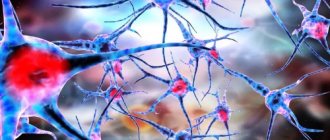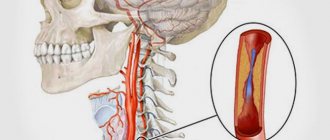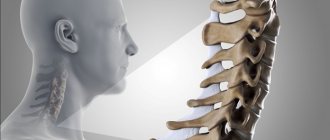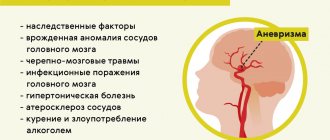Visiting the dentist is a very unpleasant experience. Having headaches after visiting the dental office is a common occurrence. If a doctor removes or prescribes treatment for a diseased tooth, a headache may occur.
The reasons for this may be the following:
- Side effect from medications;
- Severe dental disease;
- Poor oral health;
- A large number of teeth undergoing treatment;
- Poor condition of the body as a whole, the presence of chronic diseases;
- Senile age of the patient;
Most often, pain caused by the cessation of the painkiller goes away on its own. If the pain only gets worse, you need to take an analgesic and consult a specialist for advice.
One of the possible causes of headaches may be the removal of a diseased tooth. Headaches occur especially often when a wisdom tooth is removed (the procedure is not always simple). This type of operation tends to damage bone tissue and gums, which leads to pain.
When correcting a malocclusion, headaches often appear. Pain can be of various types:
- Pain in the ear area;
- The occurrence of pain in the temporal part of the head;
- The occurrence of pain in the occipital part;
If you follow clear treatment instructions, this type of headache goes away in a short time.
Headaches after using anesthesia
Very often, dentists use local anesthesia when treating teeth. After undergoing anesthesia, many patients experience headaches. There are several reasons for this type of pain:
- Presence of intolerance to anesthesia or incorrect choice of medication;
- Location of the diseased tooth in remote places;
Most often, the headache is aching in nature and tends to increase when moving the head.
If headaches began after the extraction of a diseased tooth, it is necessary to find the cause of the pain; it may be a complication of the operation.
Science and clinical practice
I will try to tell you about the effect of anesthesia on the human body, and in particular on the brain.
Anesthesia is a state of loss of consciousness that is induced artificially and is characterized by its reversibility. Anesthesia produces pain relief, which allows it to be used in surgery to relieve the patient of the suffering associated with the sensation of physical pain. The state of anesthesia is achieved with the help of anesthetics; there is a certain medical specialization - an anesthesiologist who selects the optimal dose and combination of drugs based on the individual characteristics of the patient’s body, in addition, the type of medical effect matters. It often happens that anesthesia causes fear in people to a large extent more than the surgical operation itself. Among other things, there are many rumors and rumors about anesthesia; some fear that anesthesia can cause death. Is it really? How does anesthesia affect the human body? Is it dangerous, will anesthesia affect further memory problems and cognitive functions of a person?
I don’t want to offend anyone, but very often I hear amazingly illiterate and ignorant statements about anesthesia on this subject, not only from ordinary people, but also from doctors, but almost any non-anesthesiologist will be happy to tell you thoughtfully something like “anesthesia is always anesthesia” or “Anesthesia is not candy.” It’s good that at least the majority do not repeat the generally accepted nonsense that “anesthesia takes 5 years of a person’s life” or “affects the heart.” Patients who undergo operations under general anesthesia write with pleasure in various forums how afraid they are of “general anesthesia,” and a chorus of well-wishers echoes them: “yes, yes, anesthesia is like dying a little,” “anesthesia has a lot of contraindications,” “maybe allergic shock!” It seems that you can do without anesthesia and there is no need to monitor the patient’s somatic condition during the most complex and traumatic interventions. True, no one writes that pain has a very, very strong effect on health, that not everything can be tolerated.
Most of us know about anesthesia that it is used during operations as an anesthetic; this is where our knowledge ends and fears, worries, and speculation begin. General anesthesia, or anesthesia, is a time-limited state of unconsciousness during the administration of special painkillers, during which time the patient undergoes a surgical operation, after which the patient’s consciousness is restored. The actions of the anesthesiologist are aimed at relieving the patient of pain during the operation, as well as to ensure a normal and painless transition to a state of consciousness, with no discomfort.
How general anesthesia affects the human body should be discussed based on what type of anesthesia is used. General anesthesia is divided according to several criteria, but again we will not go deeper, but will only name and characterize the main types used in practice. For major operations on internal organs located above the diaphragm, which separates the chest cavity from the abdominal cavity, anesthesia with artificial ventilation of the lungs is usually used, and, in heart operations, with artificial circulation. Anesthesia drugs can be administered either intravenously or through inhaled air, or both. Sometimes such anesthesia is also supported by spinal (subdural) or epidural anesthesia, which, in turn, can be used independently. During spinal anesthesia, the drug is injected under the dura mater into the fluid that washes the spinal cord at the level of its segments responsible for sensitivity in the surgical area. For the duration of the anesthetic, these segments and all those located below them become insensitive to pain, and the anesthetized parts of the body become immobile. With epidural anesthesia, the drug that causes it is injected above the dura mater, at the level of the nerve trunks extending from the spinal cord and, washing them, causes an interruption of sensory and motor nerve impulses at the site of action of the drug. Organs located below the operation site may not be anesthetized. Both types of such anesthesia are considered gentle: they are the least aggressive and have the advantages of general and local anesthesia, while practically not having their disadvantages. Epidural anesthesia can also be prolonged. In this case, a thin catheter (tube) is placed over the dura mater and brought out. It is glued to the patient’s back and painkillers are added there: this postoperative pain relief is the most effective. These types of anesthesia require a very small amount of a drug from the group of local anesthetics; until recently, pain relief was done with lidocaine, but now drugs have been proposed that act longer and are more effective in smaller doses.
The anesthesiologist chooses the type of anesthesia based on the individual characteristics of the person being operated on; the choice depends on his physical condition, on what kind of operation is being performed, and even the level of qualification of the surgeon and the anesthesiologist himself matters. In order to perform the same operation on different people, different types of anesthesia can be applied to them; the ideal combination of drugs is selected for the patient, which is achieved by mixing different drugs and types of pain relief. Thus, the importance of a specialist anesthesiologist is extremely difficult to overestimate; this doctor is always present during all major operations.
People who have undergone surgery, and therefore general anesthesia, report the following symptoms and unpleasant moments after the use of painkillers:
Firstly, memory impairments are possible, which can manifest themselves in different ways, from subtle isolated cases to regular and pronounced ones that arise suddenly.
Secondly, after using anesthesia, some note sleep disturbances, which can persist even several months after the operation.
Thirdly, immediately after surgery, the use of anesthesia can cause headaches, hallucinations, hearing and speech disorders. All these symptoms, as a rule, disappear within the next few hours after the application of anesthesia.
And this is not a complete list of troubles that can be caused by the use of anesthesia, as people who have suffered it say.
Now let's talk about the effect of general anesthesia on the brain:
Some of the consequences of anesthesia are memory impairment, decreased attention, and deterioration in learning ability. The disorders described above in medicine are called postoperative cognitive dysfunction. Memory impairments observed after anesthesia always cause a lot of trouble for patients. Patients are concerned about what happened to their memory after anesthesia, how long it will last, and what can be done to alleviate the condition. As a rule, anesthesiologists cannot give clear answers to the questions posed above. Memory impairment after anesthesia is not such a rare complication. Most studies regarding post-anesthesia memory impairment have focused on cardiac surgery. It has been shown that during the first week after anesthesia, memory impairment occurs in 30-80% of cardiac surgery patients. Patients who have undergone non-cardiac surgery are at slightly lower risk of developing memory impairment after anesthesia. Thus, in the first week after anesthesia, a decrease in memory and attention is observed in 25% of patients, and after 3 months – in 10% of patients. There are studies that show that after undergoing anesthesia, cognitive disorders can persist for a year or more.
Scientists have not reached a consensus on which type of anesthesia has the least effect on the brain. According to some, disorders of cognitive functions such as memory, attention and learning occur with the same frequency, both with general anesthesia and with regional methods of anesthesia (spinal anesthesia; epidural anesthesia). Others have concluded that regional anesthesia is associated with fewer incidents of memory and attention impairment.
There is no clear answer regarding the harmfulness or harmlessness of individual anesthesia drugs. It is believed that sharp changes in the delivery of oxygen to the brain are important in the development of memory impairment during anesthesia. During anesthesia, it is possible to develop certain conditions that are associated with the development of temporary oxygen starvation of the cerebral cortex. These conditions are associated with a significant drop in blood pressure and a marked decrease in oxygen levels in the blood.
Despite the fact that the causes of post-anesthesia intellectual impairments continue to remain unclear, scientists have found a number of factors that increase the risk of developing attention and memory impairments after anesthesia: older age, repeated anesthesia, long-term surgery, low level of education of the patient, and those that developed after surgery. infectious and respiratory complications.
In order not to scare potential patients, as a neurosurgeon I can say that often all problems with memory and cognitive functions are reversible! There is a sufficient arsenal of tools to solve this issue, which in most cases will help not lead to the development of complications or will help restore lost functions as quickly as possible.
The most important thing I want to say in conclusion is that, of course, the risk of anesthesia and the volume of surgical intervention are always assessed. You always need to make a CHOICE!
The choice is of course yours, but after an explanation from the TEAM (anesthesiologist and surgeon) about the development of possible pros and cons - and the occurrence of possible complications.
By the word TEAM I mean a well-coordinated team (anesthesiologist, surgeon, nurses) who work in one direction - for the benefit of the patient with a good quality of life!
Headache due to complications arising after dental intervention
Many patients experience headaches after visiting the dentist. Various factors can contribute to the appearance of pain symptoms:
- The appearance of complications that manifested themselves during dental treatment;
- Intolerance and allergic reactions to the use of drugs;
- Contraindications to tooth extraction;
- The appearance of a specific odor in the place of dental treatment;
- The presence of inflammation of the tissues of the oral cavity;
- The presence of swelling of the oral tissues;
Most often, pain occurs in several places. They begin in the jaw and gradually spread throughout the head. Painful sensations can be either sharp or aching. Complications after going to the dentist may depend on the presence of certain diseases in the patient:
- Very often, pain appears in patients suffering from diabetes. The headache may last for a long time;
- Ear disease, which can progress during dental treatment and cause headaches;
- Delay in contacting a specialist, which results in severe diseases of the teeth and gums, which are accompanied by painful symptoms of the head;
After symptoms of complications occur, you must go to the hospital to prescribe effective treatment. The occurrence of headaches may be due to the progression of certain dental diseases. Such as:
- Periodontitis – aching pain occurs in the temporal parts of the head;
- Alveolitis - severe pain occurs that begins in the jaw area;
Features of symptoms and signs
Neurotoxic manifestations are observed infrequently, since most cytostatics do not cross the blood-brain barrier (BBB) and do not penetrate the brain. Fluorouracil and its derivatives fluorafur and capecitabine, vinca alkaloids and cytosar pass through the BBB.
Headaches with central neurotoxicity are intense and are accompanied by other “brain” symptoms: dizziness, nystagmus, and coordination problems.
Cardiotoxicity in the form of increased blood pressure and, as a consequence, cephalalgia with flashing floaters, dizziness and nausea is observed in 10% after cisplatin, half as often after bevacizumab. Etoposide, Erbitux and alemtuzumab lower blood pressure, causing dizziness with headache in every 20 patients. Interferon leads to hypotension and twice as often to hypertension.
Leukopenia and neutropenia contribute to the activation of the herpes virus with constant dull and mild pain for two to three days in combination with peripheral neurological manifestations, moderate fever and weakness.
Post-chemotherapy anemia is complicated by dull, low-intensity pain in the head combined with weakness and shortness of breath with little exertion. Lack of nutritional elements has a variety of symptoms, depending on the type of deficient component of hemostasis. So, with a lack of potassium, the heart rhythm is disturbed, convulsive muscle contractions, increased blood pressure, weakness, and changes in stool are possible.
Headaches after dental implantation
Pain may occur during the recovery period and after dental implantation surgery. Patients usually experience headaches for several days after surgery. The cause of pain is inflammatory processes in the tissues surrounding the implant. For severe pain, the doctor will prescribe a painkiller. If the pain does not go away within five days, you should contact a specialist who will check the implants for surgical complications and prescribe appropriate treatment.
what is pain after surgery
Pain after surgery is an excruciating or unpleasant sensation experienced by a patient who has undergone surgery. Pain is felt not only in the suture area or adjacent to it, but also in distant areas.
The nature of the pain depends on the disease for which the operation was performed. Most often, such pain develops after operations to remove a herniated intervertebral disc, inguinal hernia, gall bladder, joint replacement, gynecological operations, as well as after cesarean section, injuries and burns.
Treatment methods for headaches after dental surgery
If you have a headache for a long time, your dentist will prescribe treatment using the following medications:
- Anti-inflammatory drugs - help relieve inflammation;
- Analgesics – eliminate pain;
- Antispasmodics – relieve spasms that cause pain;
If the cause of pain is inflammatory processes in the oral cavity, then the presence of toxins, which are eliminated by the use of antibiotics, should initially be eliminated, and only then the prescribed medications should be used.
Taking such medications must be done under the supervision of a physician. The use of such drugs is contraindicated for patients suffering from stomach diseases.
Relieving pain with folk remedies
If you experience headaches after a recent visit to the dentist, you must first identify the cause of the disease. It is impossible to do this on your own without visiting a doctor. You can use some traditional medicines, but you should consult your doctor before using them.
- Drinking mint tea is good for eliminating cramps and reducing headaches;
- Freshly prepared viburnum juice - drink one hundred grams for headaches twice a day for five days;
- The use of hot foot baths is a proven folk method for relieving headaches;
You should know that the occurrence of headaches after dental treatment may be one of the first prerequisites for the occurrence of more dangerous diseases.
Painful sensations mean that inflammatory processes are occurring in the body, so you need to consult a specialist; you should not self-medicate. Moscow metro station Zvezdnaya, Danube Avenue, 23










